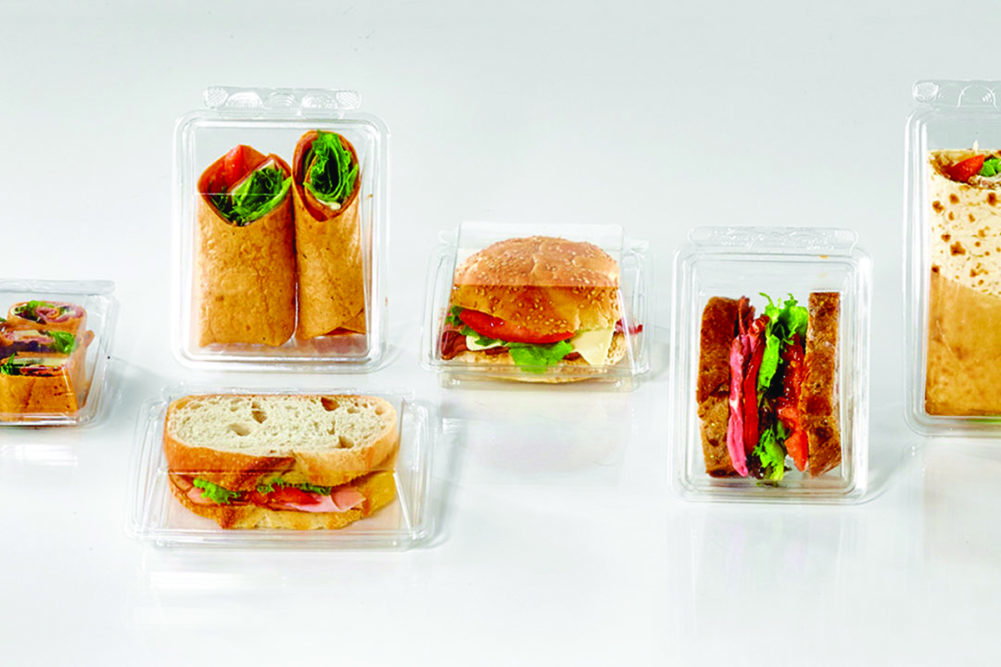Food safety standards for instore delis that may have sufficed in the past aren’t capable of meeting the need of retailers, regulators and consumers in 2021, industry experts say.
“Food safety best practices are constantly evolving as we learn and grow as an industry,” said Tyler Williams, chief technical officer for St. Louis-based ASI Food Safety. “For example, if you had asked me a few years ago, handwashing and personal hygiene would have been on my top five list.”
That doesn’t mean those things aren’t necessary, he said. But the industry has been harping on handwashing and proper hygiene for years, so most food manufacturers and commissaries do a good job at educating employees on that particular best practice.
But as more is learned about food safety-related outbreaks, retailers and their supplier partners — and the third-party firms that help keep their food safety programs up to snuff — start to understand the best practices that maybe they haven’t put enough emphasis on.
“I think there are definitely best practices that are more important than others,” Williams said. “For example, washing your hands is probably more important than not wearing a necklace. Although both are important, the risk of spreading Staphylococcus from not washing your hands is more important than someone finding foreign matter (i.e., the necklace) in their food.”
That being said, retailers and their supplier partners shouldn’t ignore one food safety best practice just because it has a lower risk, he added.
Most suppliers of grocery stores are required to have some type of third-party certificate and meet specific requirements set by that particular grocery store. For example, most major grocery stores require that all of their medium to large suppliers to obtain a GFSI Certificate, such as SQF, Williams said.
“For their smaller local suppliers, they might only need a third-party GMP audit or GFSI Global Market Audit. Depending on which type of third-party certification the supplier is required to obtain sets the food safety best practices they must follow.”
Those standards are typically designed around current Good Manufacturing Practices (cGMP) and the 12 steps of HACCP (Hazard Analysis Critical Control Point), Williams added.
ASI helps retail grocery stores by performing kitchen audits of their delis and prepared foods sections. The company also conducts third-party and second-party audits on behalf of several large grocery chains to ensure their suppliers are supplying safe and quality food.
CDC studies: delis have work to do
The US Centers for Disease Control and Prevention’s Environmental Health Services division has conducted studies to see if retail delis are meeting food safety standards.
Some of their findings suggested that many delis have considerable work to do:
- 1 in 6 delis had a refrigerator that was too warm.
- 1 in 4 delis had sanitizer solutions at improper concentrations for cleaning surfaces that come into contact with food.
- 3 in 5 delis had slicers that were damaged.
- About half of delis did not fully clean their slicers every 4 hours.
- Most delis inspect their slicers, but only 1 in 4 reported inspecting their slicers for damage every 4 hours.
Most delis had proper practices for storing and handling raw meat, but some did not. One in four delis did not store raw meat in separate containers, bins, or trays away from ready-to-eat food; one in 10 delis with a cold storage unit stored raw meat above ready-to-eat food; and one in 10 delis had potential cross-contamination of raw meat and ready-to-eat foods during preparation (for example, same knife used on raw meat and ready-to-eat foods without cleaning in between).
Retail delis were more likely to engage in these recommended food safety practices if they were chain delis, required kitchen managers to be certified in food safety, provided food safety training to workers, monitored and recorded refrigerator temperatures and had written slicer cleaning policies.
Food safety prioritized in new line of packaging for deli sandwiches
Mansfield, Mass.-based Lacerta Group, Inc., a leading designer and manufacturer of specialty thermoformed packaging solutions, has announced the launch of five new containers for sandwiches sold in instore delis and other channels that put food safety front and center.
The company’s newest additions to its Fresh N’ Sealed line are designed to meet increased demands for not only safety but also convenience and quality ingredients, according to the company.
Created to showcase the shape and contents of the sandwich, the packaging can also be made with up to 100% post-consumer recycled (PCR) content.
The new sandwich containers include Single Wrap Tamper Evident containers and many other packages in a variety of sizes to help prevent sandwiches from being tampered with.
“Among consumers who are spending more on convenience store prepared foods, 35% attributed their spending to the food looking or tasting fresh, and 34% cited high quality,” said Ali Lotfi, president of Lacerta Group. “Aside from the need to present food with quality, freshness, and overall shelf appeal in mind, we also know the consumer of today values health and convenience. In keeping with our mission of providing innovative and sustainable solutions for our customers, our new line of sandwich containers aims to help them find more ways to meet increasing demands and scale their operations.”
Fighting listeria in the instore deli
The US Food and Drug Administration and USDA-FSIS have identified the top five best practices for controlling listeria in delis. Listeria contamination of sliced deli meats is a significant cause of foodborne illness and outbreaks. Additionally, Listeria causes the third-highest number of foodborne illness deaths in the United States.
- Store deli meats in refrigerators below 41◦F
- When sanitizing, ensure that the sanitizer solution is at the proper concentration
- Use undamaged and easily cleanable equipment
- Clean and inspect in-use food slicers every four hours
- Prevent cross-contamination of raw and cooked meat

